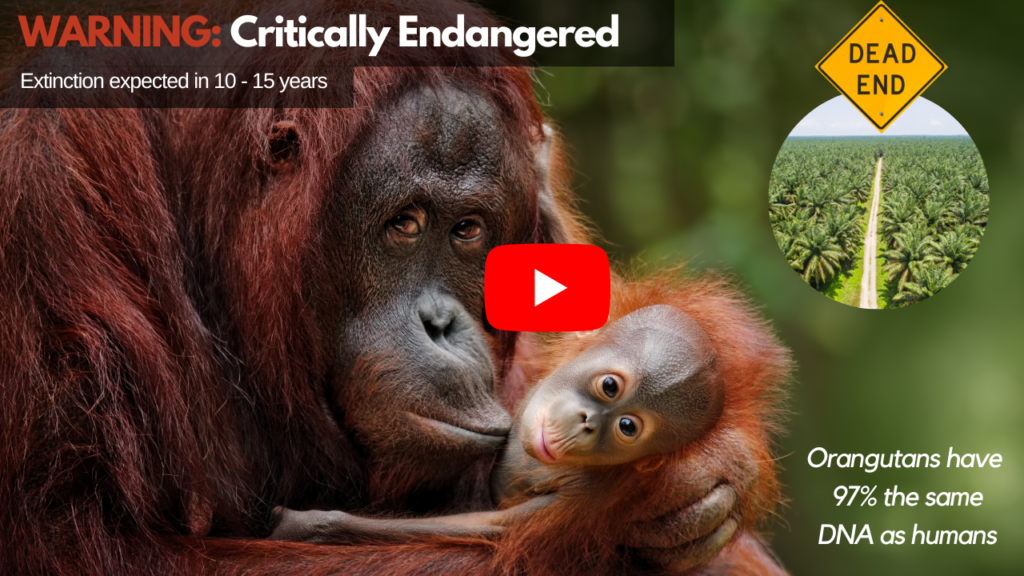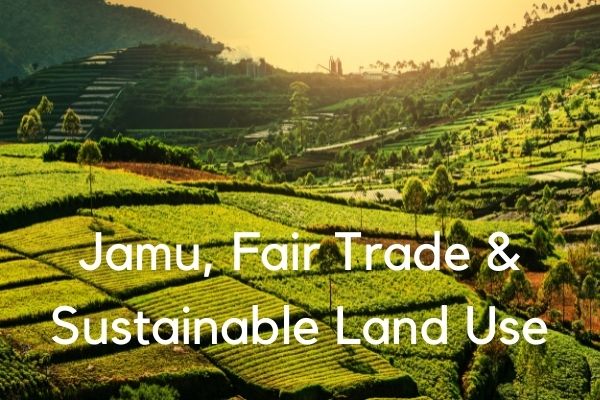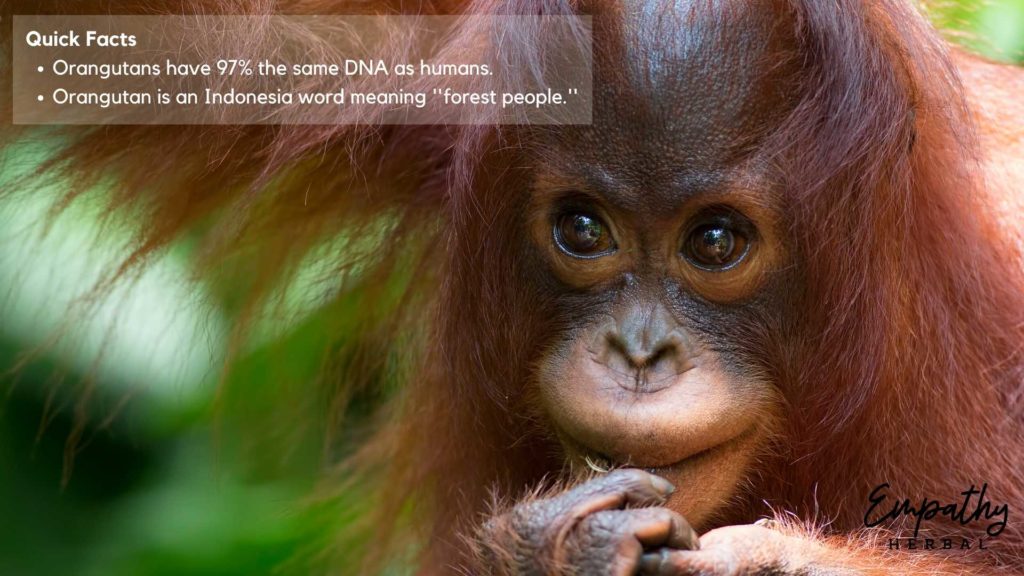Sumatra’s wildlife is collateral damage for palm oil plantations
Q) Why is palm oil in so many products?
A) Because it’s cheap & versatile, meaning companies can add it to their products to increase profits.
Orangutans Habitat Loss is Preventable!
Did you know: Over the past 22 years Sumatra has lost about 50% of is natural forests (around 12 million hectares have been cleared). Palm Oil Deforestation is to blame.
We can’t allow entire species to die for nothing!
– cheap products & snack foods…
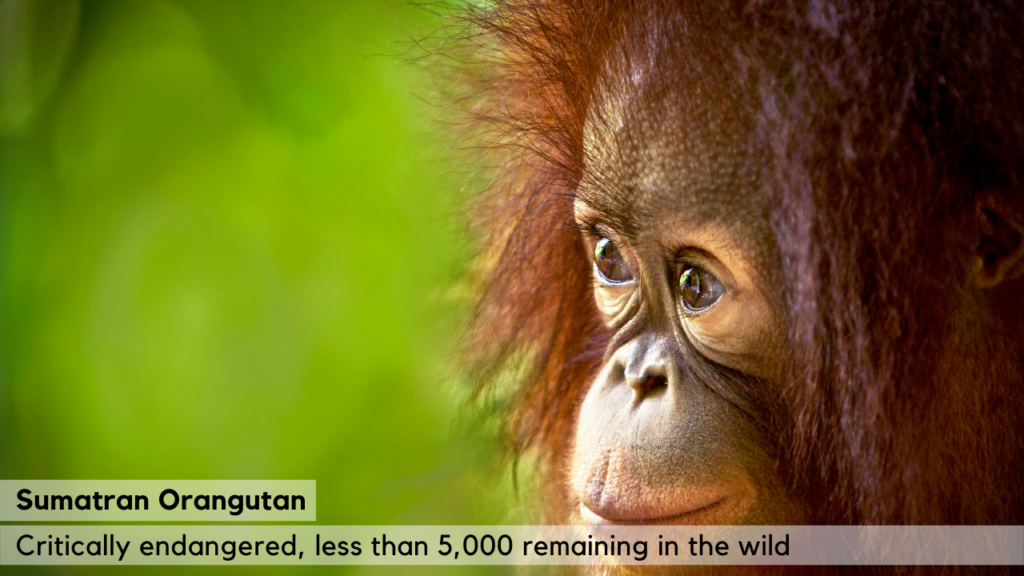
Sumatran Orang-utan. (Orang-utan is actually an Indonesian word translating in English to ‘people of the forest’)
Critically endangered, less than 7,300 remaining in the wild and their extinction is likely within 10 year. Their habitat is tropical and subtropical moist broad-leaf forests. Orang-utans are closely related to humans having 97% of the same DNA as us. Historically found throughout Sumatra and Java the species range is now restricted to mainly Northern Sumatra and Aech. The reason for such dramatic loss of population is due to poaching, deforestation and forest fires. Smoke confuses and disorientates orang-utans leaving them vulnerable to death from starvation, loss of habitat or being burnt alive.

Sumatran Elephant
Critically endangered, less than 2,500 remaining in the wild and their extinction is likely within 10 years. Their habitat is lowland forests & close to rivers. The majestic Sumatran elephant’s existenceis important to Sumatra’s natural forests. They contribute to a healthy forest ecosystem by feeding on green vegetation and depositing seed as they migrate. Illegal poaching, loss of habitat and the subdivision of land for palm oil plantations are responsible for the Sumatra elephant being listed as critically endangered.

Sumatran Tiger
Critically endangered, less than 400 remaining in the wild & their extinction is imminent. Their habitat is tropical broad-leaf evergreen forests, freshwater swamp forests and peat swamps. Sumatran tigers are currently the smallest surviving subspecies, making them extremely valuable to poachers on the black market. The reduction of habitat and prey has made them easier targets, which has resulted in a dramatic decline in population. Unless deforestation and poaching activities are corrected this beautiful creature will become extinct, like its relatives the Javen and Balinese tiger.
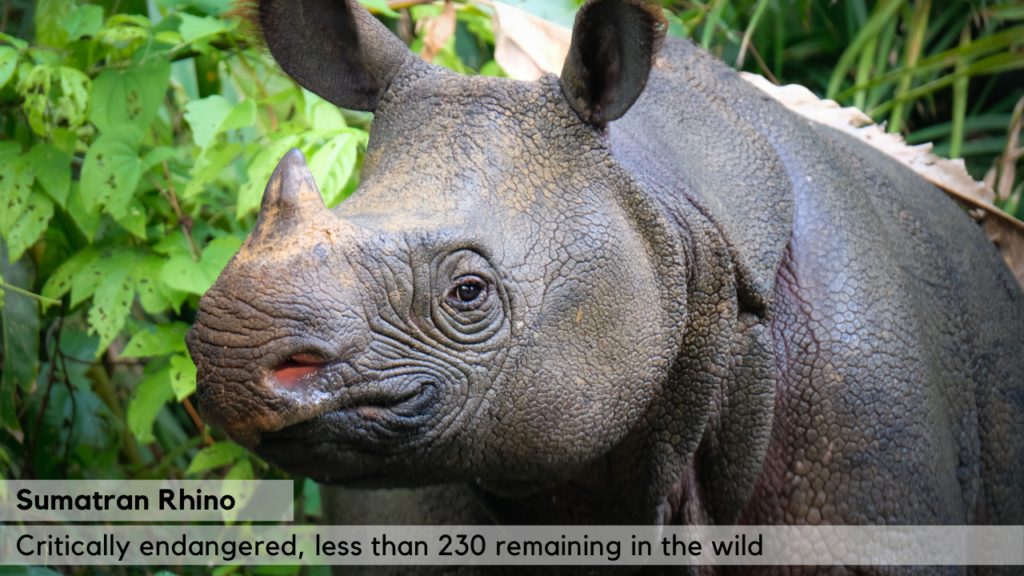
Sumatran Rhino
Critically endangered, less than 230 remaining in the wild and their extinction is imminent. Their habitat is dense highland, lowland tropical and sub-tropical forests. Sumatran rhinos are currently the smallest rhinoceroses in existence. In the past they could be found throughout SE Asia and parts of East India. However they now rival the Javen rhino for the title of most endangered rhinoceroses. They are the last 2 horned rhino species remaining in Asia, which has made them desirable to poachers being sold on the black market. Like the Sumatran tiger the loss of habitat has made them easier targets. With less native habitat to graze on and migrate through they are more likely to be caught in snare traps, resulting in an agonizing slow and painful death.
Who Can Help Orangutan Habitat Loss?
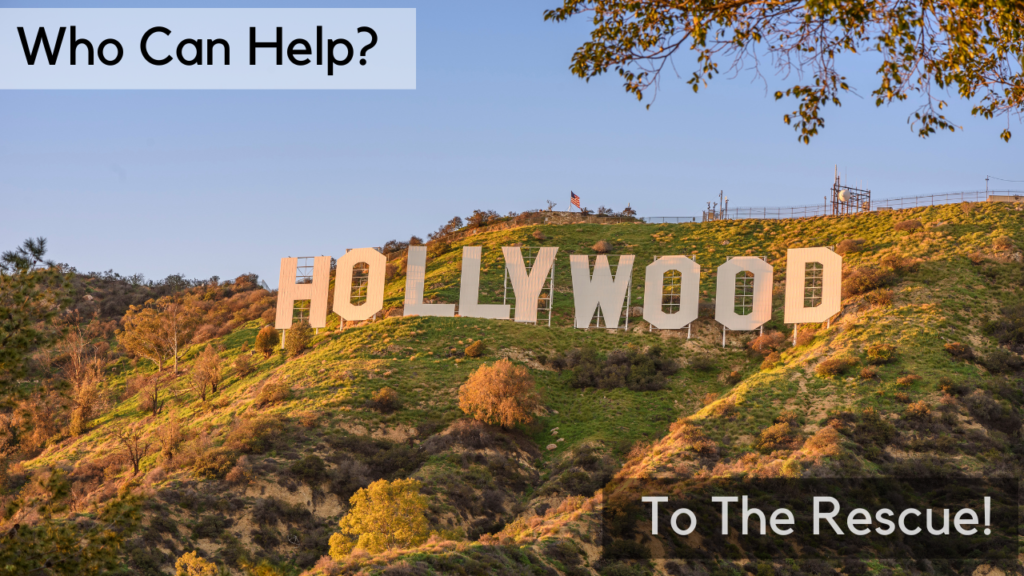
Famous actors like Harrison Ford and more recently Leonardo DiCaprio have publicly supported better land use in Sumatra. Specifically, the lowland rain forest of the Leuser Ecosystem, which is considered the world’s best remaining habitat for the critically endangered Sumatran elephant.
“In these forests, ancient elephant migratory paths are still used by some of the last wild herds of Sumatran elephants. But the expansion of Palm Oil plantations is fragmenting the forest and cutting off key elephant migratory corridors, making it more difficult for elephant families to find adequate sources of food and water.”
The Leonardo DiCaprio Foundation is supporting local partners to establish a mega-fauna sanctuary in the Leuser Ecosystem.
Sumatra is the “last place on Earth where Sumatran orangutans, tigers, rhinos and elephants coexist in the wild.” Leonardo DiCaprio
Do you need to be super-wealthy or have super-powers to help?
No, Anyone can help!
You can make a difference by simply reading the label the next time you go shopping…
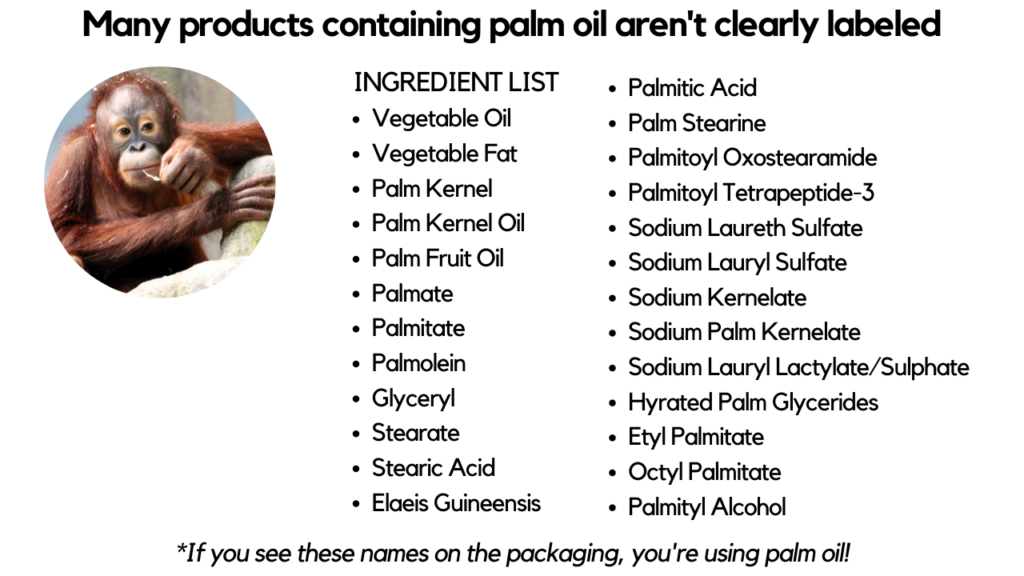
So please, look & think BEFORE you buy.
